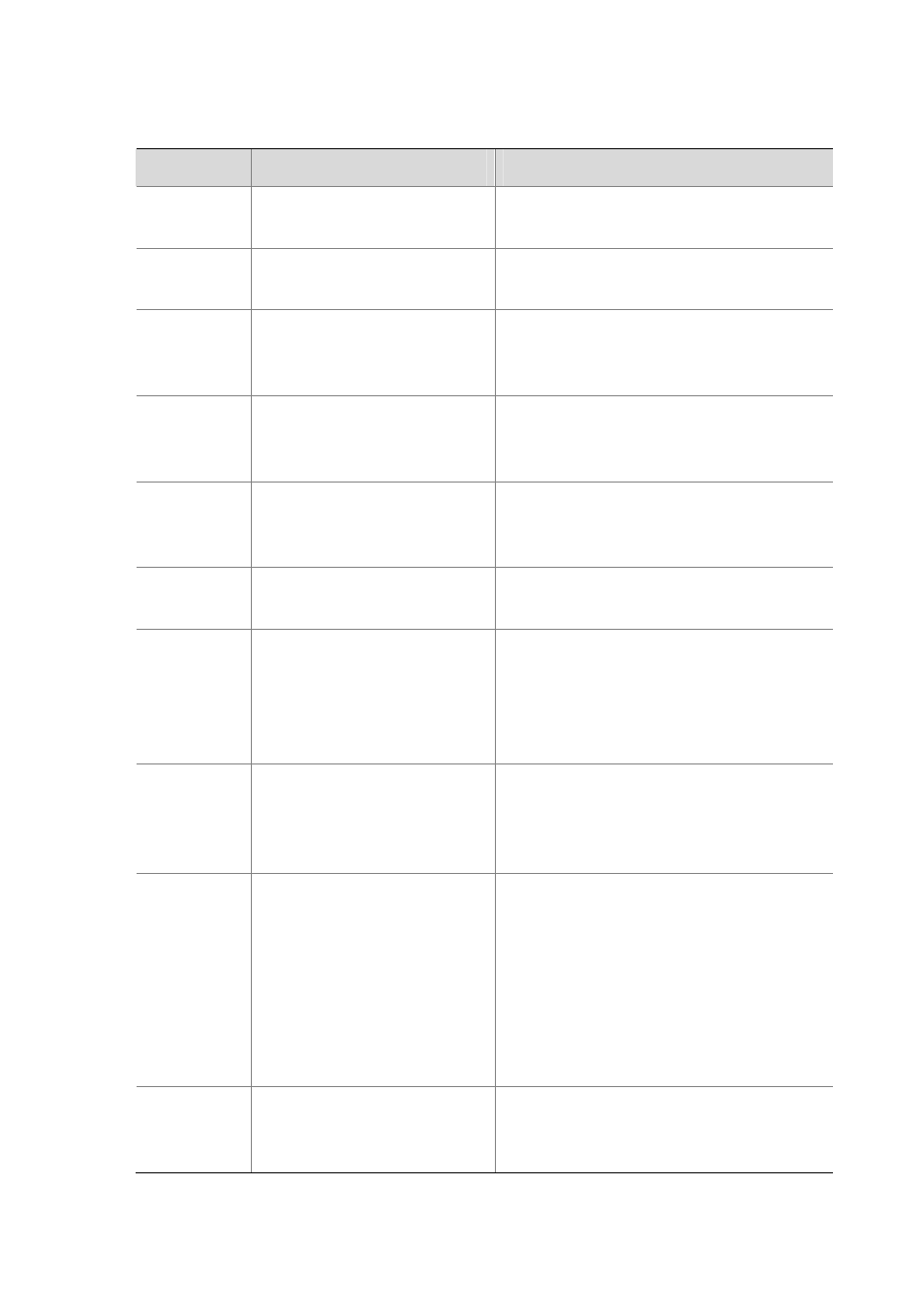H3C Technologies H3C S7500E Series Switches User Manual
Page 25

1-14
A regular expression is a case sensitive string of 1 to 256 characters. It also supports the following
special characters.
Character
Meaning
Remarks
^string
Starting sign. string appears only at
the beginning of a line.
For example, regular expression “^user” only
matches a string beginning with “user”, not “Auser”.
string$
Ending sign. string appears only at
the end of a line.
For example, regular expression "user$” only
matches a string ending with “user”, not “userA”.
.
Matches any single character, such
as a single character, a special
character, and a blank.
For example, “.l” matches both “vlan” and “mpls”.
*
Matches the preceding character or
character group zero or multiple
times.
For example, “zo*” matches “z” and “zoo”; “(zo)*”
matches “zo” and “zozo”.
+
Matches the preceding character or
character group one or multiple
times
For example, “zo+” matches “zo” and “zoo”, but not
“z”.
|
Matches the preceding or
succeeding character string
For example, “def|int” only matches a character
string containing “def” or “int”.
_
If it is at the beginning or the end of a
regular expression, it equals ^ or $.
In other cases, it equals comma,
space, round bracket, or curly
bracket.
For example, “a_b” matches “a b” or “a(b”; “_ab”
only matches a line starting with “ab”; “ab_” only
matches a line ending with “ab”.
-
It connects two values (the smaller
one before it and the bigger one
after it) to indicate a range together
with [ ].
For example, “1-9” means 1 to 9 (inclusive); “a-h”
means a to h (inclusive).
[ ]
Matches a single character
contained within the brackets.
For example, [16A] matches a string containing any
character among 1, 6, and A; [1-36A] matches a
string containing any character among 1, 2, 3, 6,
and A (- is a hyphen).
“]” can be matched as a common character only
when it is put at the beginning of characters within
the brackets, for example [ ]string]. There is no such
limit on “[”.
( )
A character group. It is usually used
with “+” or “*”.
For example, (123A) means a character group
“123A”; “408(12)+” matches 40812 or 408121212.
But it does not match 408.